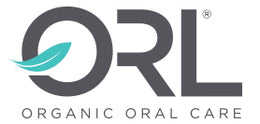Roughly 3,000,000 people in America have celiac disease. For those affected, it only takes 50 milligrams of gluten to kick off a cacophony of issues. The body triggers an immune response that damages the lining of the small intestine, which in turn diminishes nutrient absorption and puts the individual at greater risk for a host of long-term issues like osteoporosis, nerve damage, infertility, and seizures. Symptoms like bloating, pain, brain fog, rashes, and headaches are common. All this from the equivalent of eating something as tiny as a crouton.
There are also those who suffer from non-celiac gluten sensitivity; a condition that comes with the same symptoms, but not the intestinal damage, as well as gluten ataxia and wheat allergies. Anyone with these conditions must be incredibly mindful about avoiding gluten.
These are vastly different worlds, but they all result in one thing; choosing to live a gluten-free life.
A Gluten-Free Diet Doesn’t Always Eliminate the Symptoms
The dietary trend of gluten-free living has thankfully made it much easier for people who genuinely can’t tolerate gluten to engage in everyday activities, like dining out. Yet, 30% of those diagnosed still report symptoms even after they’ve "gone gluten-free". Experts say this is often because of hidden gluten sources. Whether intentionally or unintentionally via cross-contamination, gluten finds its way into medications, supplements, cosmetics, hygiene products, communion wafers, and even toothpaste and mouthwash. Scientists have found it in concentrations as high as 35ppm in toothpaste. While that’s arguably a very small amount, it doesn’t take much to tip the scales, especially in sensitive individuals. Moreover, consuming small amounts of gluten from various sources adds up. It’s easy for even the most mindful person to unintentionally trigger a reaction from consuming the equivalent of crumbs.
Those with Celiac Disease Have More Dental Complications Too
The impact of celiac disease doesn’t stop with gastrointestinal issues. It impacts the whole body; oral health in particular. A few examples of oral health concerns those with celiac disease must contend with are detailed below.
Delayed Dental Development
Because people with celiac disease have difficulty absorbing nutrients in their diet, they’re prone to low mineral bone density which impacts bone growth dramatically. Moving to a gluten-free diet often corrects the problem. However, children are at high risk for abnormal bone formation, which doesn’t correct after diet changes are made, and those who don’t attain normal peak bone mass during traditional growth periods generally don’t catch up later. This naturally impacts the oral structures as well, so children’s mouths tend to develop slower, their permanent teeth come in later, and they lose baby teeth later than their peers.
Enamel Defects
Enamel forms differently in the young celiac disease patient; changes in the presence of calcium and phosphorus have been noted. Enamel hypoplasia, enamel defect or enamel and dental structure alterations are often found. In other words, the teeth have aesthetic issues, such as permanent opaque white or yellow spots, which can only be corrected through cosmetic dental procedures. Defects in enamel also impact the individual’s comfort, diminish oral health, and increase risk of disease.
Canker Sores
Researchers aren't certain why people with celiac disease often develop painful canker sores, though they’re common with many chronic gastrointestinal conditions. Severity of the outbreaks tends to diminish when a gluten-free diet is adopted.
Dry Mouth
An interesting component of celiac disease is dry mouth, an often-reported symptom. Research shows that those with celiac disease do not have diminished salivary flow even though they often feel like they do. What changes is the quality of saliva, and some of those changes include diminished proteins, like amylase, which helps break down starches and Immunoglobulin G (IgG), an antibody that helps fight bacterial and viral infections .
Cavities
Children with celiac disease, in particular, see higher rates of tooth decay. This ties back to issues like mineral density and the development of enamel. However, adults with enamel defects are at higher risk as well, and those who find themselves reaching for sugary drinks, gums, and candies to combat the feelings of dry mouth increase their risk too.
Burning Mouth Syndrome and Oral Cancer
A burning sensation on the tongue or whole mouth is a common symptom of celiac disease. Scientists trace this back to diminished levels of vitamin B-12, folate, and iron. Cancers of the mouth, pharynx, esophagus, and lymphoma also increase among celiac disease patients, though those who adopt a gluten-free diet for five years drop back to levels that coincide with the general population.
ORL - The Perfect Companion to Your Gluten-Free Diet
Choosing the right oral health care products is paramount when you’re battling celiac disease, but navigating the dental aisle can be like a minefield, particularly because so many products make no mention of gluten, but still contain it. ORL makes it easy to support your oral health and give your smile what it needs while avoiding the things that can trigger reactions.
You Won’t Find Any Gluten Here
We’re proudly gluten-free. When ORL began developing formulas, we did so mindfully, only adding in healthy natural ingredients that are necessary for oral health. For obvious reasons, gluten didn’t make the cut. In fact, more than 100 harmful ingredients found in over 200 toothpastes and mouthwashes on the market today. We excluded them all.
You Can Rebalance Your Oral pH
ORL products were mindfully formulated to attain a perfect 7.0 pH balance, which means they can help restore the balance of your mouth too. That’s important because teeth demineralize in acidic environments, but naturally remineralize in a balanced one, provided they have building blocks, like calcium and phosphorus, to do so. The more opportunities your teeth have to remineralize, the less susceptible they are to decay.
You Can Fight Cavities and More with Organic Xylitol
Xylitol, a sugar substitute, is a powerhouse when it comes to oral health. It helps reduce decay-causing bacteria and can increase saliva production, thus keeping your smile healthier and you more comfortable.
You’ll Receive Vitamins and Minerals to Support a Healthy Smile
Earlier, we dug into how calcium and phosphorus levels contribute to decay and how lower levels of things like iron can contribute to burning mouth syndrome. ORL’s line of toothpastes and mouthwashes contain these vitamins and minerals, plus many more, to help ensure your smile stays healthy.
You’ll Nourish Your Smile with Natural Plant-Based Essential Oils
Countless essential oils have been scientifically proven to provide a wealth of oral health benefits. Myrrha oil, also called myrrh oil, has antibacterial properties, and has been linked with improved healing as well as diminished inflammation. Eucalyptus is similar, but also combats bad breath. Coconut oil is an antibacterial and can provide a moisture boost. The list goes on. All these, and more, are included in our proprietary formula, which can help address everything from tooth decay through dry mouth and discomfort commonly associated with celiac disease.
Experience the ORL Difference for Yourself
Living with celiac disease doesn’t always mean having to make sacrifices. With ORL, you can give your smile everything it needs to support optimum health while using gluten-free toothpastes and mouthwashes that taste great and the whole family will enjoy. Explore our full line to find your favorite flavor and experience the difference firsthand.
© 2023ORL Labs LLC. All Rights Reserved
(Note: There is no link between CD and gum disease.)



